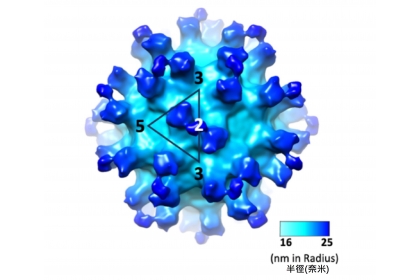New Study Shows Prior Dengue and Japanese Encephalitis Exposure May Offer Protection Against Zika Virus
2024-01-25
秘書室
Unit秘書室
1,606
Source:2024-1-24/Science Media Center Taiwan
Researchers from National Chung-Hsing University, Taiwan, have made a discovery in the fight against Zika virus. Their study, published in the journal “Communication Biology,” reveals that people who have previously been exposed to dengue virus and Japanese encephalitis virus may have acquired immunity against Zika virus. This finding may shed new light on vaccine strategies in countries where these viruses are common.
The Zika virus, which has been in Southeast Asia for many years, often does not cause symptoms in those infected. However, its link to severe birth defects, like microcephaly, in some regions has puzzled scientists. This study offers a new understanding: the immunity developed in people from regions where Japanese encephalitis vaccination and dengue infection are common might be helping to protect against Zika virus.
“Contrary to the local Zika virus transmission in neighboring Asian countries, Taiwan detects only imported Zika virus cases without any local transmission, even though periodic dengue epidemics in southern Taiwan have occurred since 1980.” says Professor Day-Yu Chao (趙黛瑜) from National Chung-Hsing University, who led the research with Professor Yen-Hsu Chen from Kaohsiung Medical University, Professor Shang-Rung Wu from National Cheng Kung University and Cheng-Yi Wang from Singapore A*STAR Research.
The team made this discovery by studying antibodies from Taiwan patients who had recovered from dengue and had been exposed to Japanese encephalitis. They identified a unique type of antibody, named K8b, which can attach to the Zika virus in a unique way, potentially neutralizing its harmful effects. This discovery was further supported by experiments showing that mice immunized against Japanese encephalitis were quickly able to respond to dengue virus.
“The study provided scientific evidence for the first time that the low zika virus incidence and its associated microcephaly in Southeast Asia could be partly explained by the high endemicity of dengue virus and the high Japanese encephalitis vaccination in the region.” Says Prof. Chao.
This research not only provides new insights into how our immune system responds to these viruses but also suggests that using existing vaccines for Japanese encephalitis might help protect people in dengue-prone regions from Zika virus – a particularly important consideration for pregnant women and travelers to areas where Zika is common.
Further clinical research is needed; however, this study opens the door to potentially more effective ways to combat Zika virus and similar diseases. It also lays the groundwork for understanding how our immune system can adapt to fight multiple viral threats.
Researchers from National Chung-Hsing University, Taiwan, have made a discovery in the fight against Zika virus. Their study, published in the journal “Communication Biology,” reveals that people who have previously been exposed to dengue virus and Japanese encephalitis virus may have acquired immunity against Zika virus. This finding may shed new light on vaccine strategies in countries where these viruses are common.
The Zika virus, which has been in Southeast Asia for many years, often does not cause symptoms in those infected. However, its link to severe birth defects, like microcephaly, in some regions has puzzled scientists. This study offers a new understanding: the immunity developed in people from regions where Japanese encephalitis vaccination and dengue infection are common might be helping to protect against Zika virus.
“Contrary to the local Zika virus transmission in neighboring Asian countries, Taiwan detects only imported Zika virus cases without any local transmission, even though periodic dengue epidemics in southern Taiwan have occurred since 1980.” says Professor Day-Yu Chao (趙黛瑜) from National Chung-Hsing University, who led the research with Professor Yen-Hsu Chen from Kaohsiung Medical University, Professor Shang-Rung Wu from National Cheng Kung University and Cheng-Yi Wang from Singapore A*STAR Research.
The team made this discovery by studying antibodies from Taiwan patients who had recovered from dengue and had been exposed to Japanese encephalitis. They identified a unique type of antibody, named K8b, which can attach to the Zika virus in a unique way, potentially neutralizing its harmful effects. This discovery was further supported by experiments showing that mice immunized against Japanese encephalitis were quickly able to respond to dengue virus.
“The study provided scientific evidence for the first time that the low zika virus incidence and its associated microcephaly in Southeast Asia could be partly explained by the high endemicity of dengue virus and the high Japanese encephalitis vaccination in the region.” Says Prof. Chao.
This research not only provides new insights into how our immune system responds to these viruses but also suggests that using existing vaccines for Japanese encephalitis might help protect people in dengue-prone regions from Zika virus – a particularly important consideration for pregnant women and travelers to areas where Zika is common.
Further clinical research is needed; however, this study opens the door to potentially more effective ways to combat Zika virus and similar diseases. It also lays the groundwork for understanding how our immune system can adapt to fight multiple viral threats.




